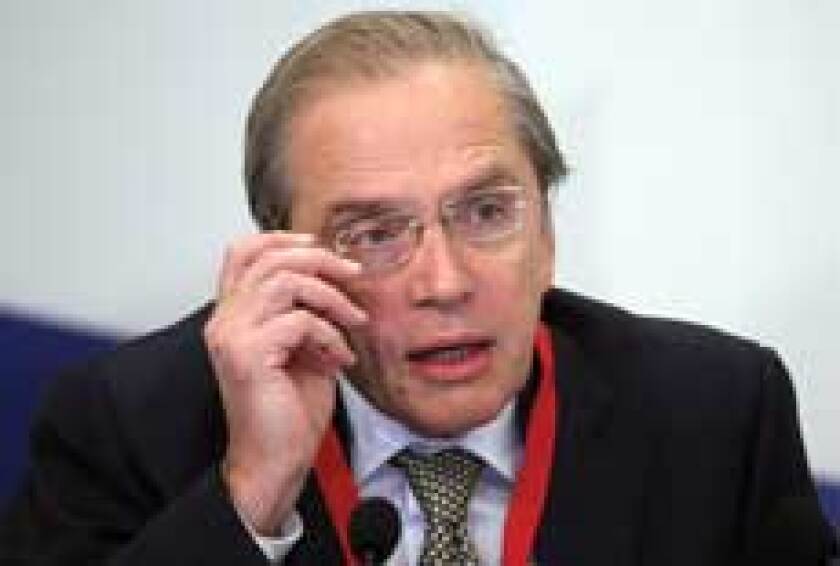Russia yesterday (Wednesday) issued a veiled threat to walk away from the EBRD five years after its shareholders agreed to cease funding for new projects in the country.
Sergey Verkashanskiy, board director for Russia at the EBRD told GlobalMarkets: “We will start thinking about going elsewhere, including other regions closely interconnected with the existing geographical scope of the EBRD. This may well imply Africa.”
Talks between the EBRD and Russia have yet to lead to any reconciliation. As the EBRD plans to expand into sub-Saharan Africa and Russia weighs up alternative potential avenues of engagement, there is growing pressure for both parties to come to an agreement.
Although Russian capital markets have been forced to develop independence in the absence of international funding, a resumption of international capital inflow would stimulate growth for the isolated economy.
Russian growth is expected to slow in 2019, reversing a short-lived period of economic recovery that had developed since US and EU sanctions were applied in 2014. Growth in Russia in 2018 rose to 2.3% — the highest level since 2013. But the EBRD expects growth to decline to 1.5% in 2019.
Sergei Guriev, chief economist at the EBRD, said: “In today’s world, no economy can exist in isolation. Russia depends on global markets, foreign investment and exports. If interaction with global capital markets and technology is cut off, then of course an economy cannot grow.”
Filling the void
In 2013, the EBRD was investing €1.82bn in Russia, in what was its largest country of operations. By 2015, a year after Russia’s annexation of Crimea, that figure dropped to €106m, and by 2016, to zero. Russia’s existing portfolio in Russia is €1.92bn including undisbursed commitments.
But Russia is not short of interest from other supranationals that are willing to fill the void left. Dmitry Pankin, president of the Black Sea Trade and Development Bank said: “For us, the EBRD took a political decision not to work in Russia. [This was a] huge opportunity for us because there [are] a lot of very good projects, especially in PPP [public-private partnership]. Previously, the EBRD was financing these projects. Our strategy is to grow the share [of Russian lending on our balance sheet].”
While its activity in Russia has diminished, the EBRD has continued its expansion past Europe. This year, Egypt will be the EBRD’s largest country of operation, a perhaps unconventional dynamic for a bank built on the principles of European, post-Soviet reconstruction.
Verkashanskiy said: “Since 2014, the EBRD has tried to replace Russia with Turkey and other countries. By curtailing spending and activities in Russia, the EBRD has lost a chunk of its DNA, history, substance and place. The EBRD cannot embark on a major new adventure in Africa without having its legacy in Russia sorted out.”
But there remains a deep underlying desire among Russian officials to repair relations with EBRD and restart borrowing. Referring to potential reconciliation between the EBRD and Russia, Verkashanskiy said: “The EBRD should relaunch its line of business with Russia, and forget about the past. This would bring results for the bank and Russia.”
